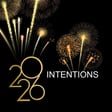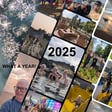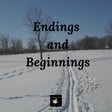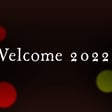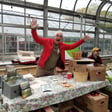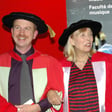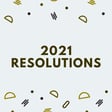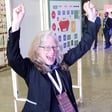Become a Creator today!Start creating today - Share your story with the world!
Start for free
00:00:00
00:00:01

Exploring the power of art with Karen Klucowicz
This week, I interview artist and gallery operator Karen Klucowicz. We spoke about entrepreneurship, the challenges of staying productive, working process and contributing to the local community.
Transcript
Introduction to Diamond Gifts
00:00:01
Speaker
Experience the Jared difference. The best prices on an amazing selection. Select your diamond gift today from hundreds of styles they're sure to love. Jared. Love brilliantly.
Interview with Karen Cluco Witch
00:00:16
Speaker
My name is Tracy Ariel and I am an apologetically Canadian.
00:00:29
Speaker
today with Karen, Cluco Witch. Wait, say it for me, Karen. Cluco Witch. I'm not rucking it. It's Cluco Witch. Cluco Witch. Right. Yay. Okay. And we're talking to her this particular week because she has just opened her
00:00:52
Speaker
artist studio and this is a fabulous opportunity to get to talk to her about her artist-run business. Can you just give a background about who you are and what's been happening and why this is the next step in your entrepreneurial journey?
00:01:08
Speaker
And it is a journey, that's for sure. So let's
Journey from Marketing to Art
00:01:14
Speaker
see. So I started the studio planning about a year ago. It actually was a year ago, Tuesday of this week, which I found really interesting.
00:01:24
Speaker
And I started planning it because I was at the point where I needed to do more with other people. And so I I've done a few things over the years. Obviously I've done interior design. I was in advertising and marketing and fine art has always been in the background for me, but I decided that it was time to move it forward so
00:01:46
Speaker
five years ago, I dropped all that other stuff. And I did it full time sold my house and took the leap. So incredible leap to really was. And it was great. And it has been great. And I've really developed my style and where I'm going with my own art.
Networking Challenges in Art
00:02:07
Speaker
And one of the things that I've encountered time and again, with the art world is trying to get your stuff out there.
00:02:16
Speaker
Right. And also networking with your peers. It's very difficult because for whatever reason with which I don't understand in fine art, artists are still very competitive, I think sometimes. Right. But it's no sense, especially this kind of world. It's so true. So like somebody that likes my stuff isn't going to like the next person's and vice versa. And I get that. And I'd much rather talk to them about their processes, their concepts, their
00:02:46
Speaker
idea is because their creativity fuels everybody else. Yeah. So I like that restaurant thing, you know, people will go to an area if there are 30 restaurants on a street, much more readily than if there's just one. And part of it is because there's some fit some people and some fit other people, but sometimes it's just you want diversity. So this time you'll pick that but next time you'll pick something else. Oh, true. It really is a big
00:03:16
Speaker
a learning curve for people to be collaborative anyway. I think that's true too, yes. So basically how the studio arrived was I was debating whether I continued with my fine art and kept trying to get it out there or would I go and get a nine to five somewhere which doesn't suit me well given that I haven't done it in like I don't know how many years. Even in my own business I never do nine to five it's typically as you know I'm sure
00:03:45
Speaker
When you're working for yourself, you're not actually working for yourself. You're working for many people, right? You actually have like 10 bosses on the go sometimes. Yeah, exactly. So I just, I determined what it was I really wanted to do.
Empowering Through Art
00:04:04
Speaker
And for me, it's to share art and the power that art has, which is what, you know, ultimately that's where my vision for the company, for the studio came.
00:04:14
Speaker
um, down to living the power of art. And so to do that, I thought, what are the things I love about it? I love sharing it. I love teaching it. Um, I love talking about it. So, and I love working with other artists. So, um, I decided that that's what the studio should be. Oh, and I also do like in terms of the teaching, I do team building events, which has been like, yeah, it's really cool because, um, corporately,
00:04:44
Speaker
it's different than like a paint night that you would go to to paint a sunflower. So in this one, what they do is they tell me what message they want to deliver to their team. And then we find a painting that works with that and everybody does a piece of that painting and then we put it together and reveal the masterpiece and the Google and effective of the piece. Oh my gosh, that's a really fun exercise. And how long does it take usually?
Virtual Art Events During Pandemic
00:05:10
Speaker
Um, they're usually usually run them up about two to three hours. There's a little introduction. There's a little experimentation and then everybody sort of gets situated and they paint for like an hour, an hour and a half. And then there's usually a wrap up like an hour, a half hour wrap up where we put it together. They, you know, get the revelation of what it is and then
00:05:31
Speaker
either the company or I will tell them what the objective was and why they're seeing it. So it's been fun for the ones that I've done and I'm hoping to expand that when things ease up a little bit, you know.
00:05:44
Speaker
Mm hmm. Yeah, that's cool. I wonder if you can do that virtually. So like they would actually do the you would send the material as a head and you would do actual I don't know. I mean, these days, it seems to me with the way things are going with this pandemic, because for the listener, we're interviewing we're we're actually doing this interview in October 2020.
00:06:07
Speaker
Um, I think it's going to play in December, but I'm not sure. Um, and, uh, so we're still in pandemic and actually Montreal has just gone into another extended lockdown until November, until November 20 something. Wow. Yeah. So we're in the red zone. Yeah. It's pretty scary everywhere. I think right now.
00:06:29
Speaker
So anyway, but we're talking about entrepreneurial adaption. So what's interesting is I just participated last weekend in a conversation, like a round table with some of the artists that are in your latest show. And we're talking about the importance of art in daily life. And I thought it was a really fascinating conversation and really, really interesting people.
00:06:51
Speaker
Lots of people, too. Oh, yes. Yeah. And I think it's great because I think they are recognizing the value of working with other artists and talking to their peers to
00:07:03
Speaker
see where their art's at and where it's going. And just to, and for me, it's been great because I've been exploring their way of working, which is very different than mine in many ways. A lot different than mine too. Let me tell you what, are you talking about their regular routines? It's like, wow, I don't think I'd get anything done with that kind of routine. Yeah, I get that. Yeah, well, so, and also I started, I actually signed the lease
00:07:33
Speaker
and took this space. Congratulations. Thank you. Before the pandemic hit.
Studio Setup in a Virtual World
00:07:39
Speaker
Just before. So that was in what, March? Yeah, I signed it in February and I got it in April.
00:07:49
Speaker
Yeah, so it was just yeah crazy. So at first I thought that's okay the first couple of months I can set the space up I can get the websites done I get all the marketing materials ready and then I'll be ready and you know I can start advertising for other artists to participate, because there's a gallery as well so.
00:08:10
Speaker
I wanted to be able to get that launched by summer. And I thought, no problem. Right. And here we are. It's October. And I mean, I'm grateful that I'm fluid enough to be able to bounce with it a little bit. Right. And now my next major challenge is going virtually. So we were just talking about doing the team events virtually. And there definitely is opportunity for that. I also have enough space in this unit.
00:08:40
Speaker
That I can do one or two I can I can probably do up to 10 people safely in this space. I wouldn't do that because it would be a little too far spread, but I also offer these other play days I call them.
00:08:56
Speaker
uh, because people think art is like a play day. So, um, rather than take a, take a kid to work, it's send a team member to a play day. And, um, yeah. And so they can come here and work with me for like, you know, four or five hours. And, um, and that can bring like lots of team objectives into play. Right. So building creativity for that. Yes. Yeah, exactly. And, and looking at new ways to solve things and, and,
00:09:24
Speaker
coming outside of what their comfort zone is. Even virtually we can do that quite easily. I'm not comfortable enough putting it out there virtually yet, but I am working on it so I'll just keep working at it.
00:09:44
Speaker
OK, so one of the things that I usually like to ask people after we get a sense of where they are, because you have just opened the studio. But in the past five years, you've been on this journey as an art, as a full time artist.
Artistic Evolution: Figures and Relationships
00:10:00
Speaker
Can you talk a little bit about about that journey? So really throughout my whole career, I have worked in art or in creativity for sure.
00:10:12
Speaker
So I did interior design, I did advertising and marketing, and I always brought it around to art. So getting to this point just feels like a natural evolution to me and a more focused effort.
00:10:27
Speaker
Awesome. That's very cool. And can you talk a little bit about your art because I've seen it, but people will have seen a couple of pieces because of this tour of your studio. But can you talk a little bit about what kinds of work you do? Sure. So my work is all based on a figure. It's just evolved to that area of art and various levels of abstraction.
00:10:55
Speaker
I work primarily in two series. The first one is about the strength of individuals. And the second one is how that strength affects relationships. Oh, okay. So all of my work is either an individual figure or two figures together, sometimes a few, not as many times. And I tend to focus on communication issues.
00:11:24
Speaker
probably from personal journey and I try to keep them optimistic and I allow the abstraction to evolve as I paint. So I concept journal, which means I write a little bit and then I sketch a little bit and then I suddenly have a painting. And so when I start to work on the painting itself, I just let the colors and the texture that I'm working with evolve
00:11:53
Speaker
and let the level of abstraction grow from there. So that's kind of where my art's at. I keep thinking this series will end, but it certainly hasn't yet. But there are so many areas of communication to delve into and relationships that, I don't know, it would probably be ongoing. How long have you been working in that kind of theme? The first time I worked with it was
00:12:23
Speaker
probably 15 years ago. And when I started working full time, and I've always gone figure drawing, I guess it's just something that I think you have to know because it can give you so many other points of reference for developing art, no matter what form it's in. And so I've always gone for life drawing studios. And when I started working full time,
00:12:51
Speaker
I just went in that direction. And so it just grew from there.
00:12:59
Speaker
Now, but the paint that you use is, what kind of paint is it?
Large Paintings and Abstraction
00:13:05
Speaker
And you do fairly large paintings too. I do. I've done very small ones, like three inch pieces that are real details. And I do my, probably my average is like a 2020 or inches, or like a 2436.
00:13:27
Speaker
Um, and I do go larger than that for sure. I've done like, um, four feet. I'm, Oh, I forgot to show you something I was going to work on in the, I'm going to work on. And as a little side, but I remember at the discussion in the artist salon, um, we talked about street art and my love. Okay. So I am going to do my next painting on a piece of found plywood.
00:14:00
Speaker
And that's my next venture. But I know it's going it like the concepts for it have already gone to the figures. So it's always going to come back to that. I know. I guess I have something to say.
00:14:15
Speaker
Yeah, yeah. Well, and it's fascinating because so many of your, I mean, you say they're figures, but they're figures hidden in abstraction. I mean, it's not obviously and necessarily a figure when you first looked at it. Absolutely. And they're always nude, which some people find a little disturbing, but I don't know why because we are born naked. And the other thing that I always try to do and has evolved as well through my concepts
00:14:45
Speaker
is the people that are in my pieces are always purple or blue. And to me, that color denotes wisdom. And also, I think it helps bridge gaps in reception for the art in terms of culture and race and identification. So some figures you can't even tell if they're male, female, or what they are, you know?
00:15:15
Speaker
And I was getting very popular these days. Right. Not knowing. So that's cool. Probably necessary. Right. So it gets some important for us to be able to identify with as many forms of art as we can. And obviously, this is my love. So.
00:15:33
Speaker
I want them to identify. Well, and what's interesting too, because I've seen your work over a couple of years now, I remember hearing you talk about, because you do this concept painting, you can talk quite extensively about each piece. Right, right. And that I think helps if somebody is concerned, like when, particularly someone who's trying to purchase it, depending on what they, how they want to use it, it's quite nice for them to get the story behind what it means to you as the artist.
00:16:01
Speaker
Right. And actually the one thing I love even more than that is when somebody receives the concept directly, like from their, their selves. And then I tell them about it and they're like, that's my story. Or, you know, like there was a woman walking down the street the other day and saw my stuff in the window and, and, um, not to come in. So I let her in and she was going through the show and, um, she stopped at this little piece that I did recently.
00:16:29
Speaker
It's a mixed media piece. It has glass and it's done oil on wood. She just said, and she started to cry. I was like, oh no, what's happening? She was just completely enveloped in the idea of it and I hadn't even talked to her about it.
00:16:50
Speaker
Wow. It was just so exciting. She had to have it. And so she's very happy with it now. And I love when people receive the concept like that.
Audience Connection with Art
00:17:01
Speaker
It just means so much because I try to put it out there so that it can be their story as well. And the other thing is, I think that in these concepts, it helps people to realize they're not alone.
00:17:15
Speaker
Yeah, well, and so many of your concepts are based on relationship and strengths and things that we all can experience or have experienced in one way or another. Right, and or think about them ourselves and think nobody else even thinks about it.
00:17:32
Speaker
Right. Yeah. So it's really a fun way of sharing. So you're going to do street art. That's really fun. Well, you know what, I'm definitely not a street artist. I wish I was, but it's going to be my adaptation of it. So stay tuned. Fabulous. And can you tell one of the things I would can you tell me a little bit about one of your most successful pieces or one of your most successful moments? So
00:17:59
Speaker
Oh, really, and truly, I feel that through my career, my most successful element has been to bring art into every one of them. And in terms of being successful, like actually committing to my art full time, which, right to me is it was very important. And like I said, honestly, there have been a couple of times when people have just responded so
00:18:27
Speaker
in such a heartfelt way to my pieces that I'm just grateful they receive it that way. That's really like that to me is success. Right. And so can you give me one of those moments and just sort of describe that moment? Okay. So there was a collector that went into another gallery that I was represented by in Niagara called Raven. And
00:18:57
Speaker
She sat with the director of the gallery for quite some time talking about my work and trying and sharing her story. And, um, the piece that she was relating to was called, um, sorry, I can't remember right off the top, but it was a piece about two people who lived apart, but together.
00:19:23
Speaker
And so it was talking about their issues with it and then how they surpassed them and how their lives still intertwined. And she said it was her story, which was so interesting because she said she and her husband had lived apart for many years and they determined that they would try to live together. And they did that and that piece symbolized that point in their relationship. Wow.
00:19:52
Speaker
That was pretty like, wow, you know, so that was a really interesting time. And then further to that, which was kind of sad, their relationship did not last and it did not endure the
00:20:08
Speaker
the joint living situation. But there was another piece that I had done at the same show, which she really liked as well at the time, but it wasn't really, I guess, in her place, but she has had it in her mind for a couple of years. And she called me, or no, she sent me a note on Facebook and she sent me an attachment of one of my postings and said, is this piece by any chance still available? And it's called Released. And the reason I did it at the time
00:20:37
Speaker
was because I had just given up on a relationship, but I was okay with it because I was releasing all the negativity from it and I was moving forward. And this piece was very spontaneous and gave me that satisfaction of acknowledging it and moving.
00:20:57
Speaker
And so she sent me this screenshot of this posting and I said, yeah, I actually do. And she said, I need it. And so I said, okay. So she came actually to this studio and it was in April or May.
Emotional Impact of Art
00:21:14
Speaker
And early on, so I had to dig it out of the inventory. And no, actually, I it's one piece that I always kept around me because it inspired me to continue to do what I was doing. And so she came to get it and she said, you know, oh, I know the other the other piece was called Commitment.
00:21:35
Speaker
And she said, you know, I bought that piece from Raven. And I said, oh, right, okay. So we had a couple of conversations following that purchase, my text. And so I knew her story. And she said, well, it didn't last, but I always remember this piece and now I feel like it represents where I'm at right now and I need to have it around me. So like those to me are very, they're successful.
00:22:05
Speaker
Yeah, yeah, yeah. Well, that's the talk about sharing art in a really intense, emotional way, you know, because both of you have, you could, you, you, you expressed that feeling in such a poignant fashion. She, you captured what she was feeling. Right.
00:22:25
Speaker
It's really amazing. Oh, how wonderful. On the other side, what kinds of, can you talk about a failure and something that didn't work the way that you wanted it to?
Learning from Business Failures
00:22:37
Speaker
I can certainly do that from a business standpoint, as I'm sure many entrepreneurs can at some level or another.
00:22:46
Speaker
Yeah, almost daily. Let me tell you. Actually, it does apply to my art because I think my biggest failure in business was that I didn't end a business early enough, previously, one of my previous careers.
00:23:03
Speaker
And I was left with a lot of debts and relationship breaks that I had really valued, some of which have recovered and some have not. But as it relates to art, I now know when to give up on a piece because sometimes I have no idea what you're like, Tracy. However, I never read one book at a time.
00:23:30
Speaker
Oh, no, no, not another door. I can't read a book at a time. I'm like, I have multiple books going on the go all the time. Okay, so you can relate to this because that is how I paint. And so
00:23:41
Speaker
When I'm working on something that I don't feel is working and it's not usually the concept, I usually get involved with the technique and issues that I feel like I'm having with them. I'll put it away and I don't look at it for an extended period of time and that might be a week, it might be a month, it might be two months. But now I know when to give that up.
00:24:03
Speaker
And on the other hand, in business, I'm trying to learn that. So I have managed to do it, um, because I don't think I'm a serial entrepreneur, but I am definitely an entrepreneur. And, um, so the last time that I was trying to do something, I decided to go about it in a different way after the first failure. So I got a business coach, which I thought was very mature.
00:24:30
Speaker
and then started to plan things. And as I was working this through, I realized after, and I don't give up easily, but it was about two or three years that I was into this. This is after the first big fail. And I decided it just wasn't going to take off like I wanted it to. So I actually withdrew from it.
00:24:58
Speaker
That was a really big thing for me to do because I hate to give up on something, especially if I'm passionate about it. I definitely have learned from it as well, which I think is great. I try to apply the same kind of principle to my art itself.
00:25:20
Speaker
It's interesting because I thought you were going to talk about the difference between planning and going with synchronicity when you started that story and rather than talking about when to give up. But it's a fascinating balance because sometimes when you go back to something, it's not the same thing anyway. Right.
00:25:41
Speaker
So I think that's a good lesson for all of us to learn. When do you give up? Because sometimes you give up too soon, too. Because some of the best businesses were things that were passions for people and they never actually, in their lifetime, they didn't actually work. But then they worked enormously well after they were dead. Sometimes I wonder if that's the way it's supposed to be.
00:26:06
Speaker
I know, I know. Well, you know what? I mean, the studio may tell us that story, right? Because I hope not. That's usually when you start a business in a crisis, then you actually have more success because you tend to be less vibe, less extensive about it. Like you do think slowly you make sure people like what you're doing before you take the next step. That's an interesting point.
00:26:35
Speaker
Yes, like if you look at a lot of the a lot of the companies that still exist started in in the first recession of like in 1907 and you'll see there's certain periods of time some of them started
Thriving in Crisis
00:26:48
Speaker
in the Depression. There's lots of companies that are still around that have started in the 30s. You can see that crises when you
00:26:55
Speaker
when you usually people who start businesses in crises get more resilience somehow I think. Maybe it's the like you you definitely have to be flexible.
00:27:08
Speaker
Um, and, and, you know, it's all the pivoting that they're talking about, right? So where I was intending to have one-on-one sessions with, um, uh, people that are enthusiasts that wanted to come in and learn how to draw the figure and how to paint the figure and, and how to express themselves visually. Um, right now I'm having to, you know, pivot, as they say, to a virtual world to try and
00:27:35
Speaker
get them excited and feel good about exploring that side of themselves. And I want to do it right because I don't want to disappoint either. Right. Yeah, you want it to be a full-blown experience. Right. Even though your participation is only virtual, you want their participation to be everything. Absolutely. Yes. Yeah.
00:27:55
Speaker
Yeah, yeah. Well, and I'm doing similar things. I mean, I'm a writer, so my art is slightly and I'm a much more practical type of artists who in terms of I do nonfiction. I do a lot of journalism and things that are very practical and not at all
00:28:12
Speaker
Well, not at all. Any creation is art. But I've also had to do a little bit of pivoting and start exploring, creating online experiences instead of in-person workshops and things like that.
00:28:28
Speaker
And so it is thinking about the full, all five senses, despite your participation being the virtual part, is actually very difficult. And sometimes, you know, I've started to ask them to get props and I'm my next step, actually, I'm just considering something I want to order a special pen so I can send people a pen.
00:28:52
Speaker
you know, so that it can be, so that I can get some of those other senses connected, you know. Right. Yeah, they need to try and bring that experience home, right? Exactly. Yeah. Yeah. Well, and plus, so many of us are working from home, too. Now, this is where I have an advantage, because I've been working from home since the, since for 28 years now. And so, but I realized, actually, I was talking to my daughter recently, working at home takes a certain level of you have to set
00:29:21
Speaker
I have to create all sorts of tricks in order to know that I'm working versus when I'm home. And so I don't do anything but work in my office. I have certain routines that keep me, okay, this is work, this is play, this is something else. Otherwise, you're just working all the time.
00:29:45
Speaker
And you know what's so important, Tracy, because so when I was doing interior design, I often had people needing home offices and they just didn't see why they needed to have that separation until they actually had it. And then they recognized the value and it's so good for you for doing that. And I was very much the same. I've worked at home for many, many years. And the last time was in a very small space.
00:30:15
Speaker
And that was horrible because I ended up having to put things away every night just to sit down. You know, it was a very small space. And so now the studio is also amazing for me because it's separate from my home.
00:30:33
Speaker
Right, even though you get to go to work for the first time in a very long time I know I keep thinking I'm gonna set myself a routine, but it never happens You're not a routine kind of girl not and so it is problematic sometimes and But anyway, I mean I'm working on it and and even though I
00:31:00
Speaker
people feel like if you're painting or if you want to paint and it strikes you at eight o'clock at night, are you going to go to the studio? Well, maybe, and maybe I'm still at the studio, right? So at least there is that flexibility as well.
00:31:18
Speaker
The complete separation is a mind rest for me, which is amazing, right? Oh, that's cool. Well, and also, I mean, I'm guessing here, well, I should ask you, doesn't it make your home more of a haven and a peaceful place? Like, have you created a new mood for your home because of this? Hmm. I've actually never thought of it in that way.
00:31:45
Speaker
I shouldn't say that because really and truly it does alleviate some of the stress that is around us. I try not to use that word and particularly as it applies to myself just because I think it's a dangerous word.
00:32:03
Speaker
Yeah, I don't use it either. Actually, I find it too. I don't actually like thinking of it because I think things are, this is a good point because if you say something is stressful, it somehow means it's bad. Right. And things are not necessarily bad, even if you feel them in an intense, emotional way. Agreed. Agreed. So for me, I would think you're right that it does become a haven because I don't have to think about
00:32:30
Speaker
what might happen three months from now or as I'm planning out my next ad campaign.
00:32:39
Speaker
Um, you know, I'm not having to think about that at home necessarily, right? I mean, I do take the other creative side home though. I have a sketchbook constantly with me. I have paints at home. I have canvas at home in case I am inspired and need to really do something right away. Or if I just want a day where I am not actually painting in studio, I will do that.
00:33:04
Speaker
Right, right. Well, and I mean, that would be, I mean, I have all sorts of notebooks and now I've used my, I'm using my phone much more as a collector of writing, you know. Isn't that dangerous? Because I know, and I, because I'm guilty of it, not guilty, I shouldn't say, but I add, I do that as well.
00:33:24
Speaker
And I have had a couple of times where my notes disappear on backups or something and I'm like, oh my goodness, I have no idea what I wrote. I actually just did a little blog post the other day about the studio and about how one works, right? So I like to think that I work in organized chaos.
00:33:48
Speaker
What a wonderful idea. I think because I'm visual, I can picture exactly where things are. Even if I have a whole stack of papers beside me, I know which paper it is and where it's at in that pile. The same with my supplies.
00:34:10
Speaker
So yeah, I'm just like that. But to the point of notes, I tend to make multiple lists. So one of my things in the last blog post that I did was just about organizing and how you work and recognizing that it's OK to work, whether you're in a cluttered chaos like I work or a totally clean desk that has nothing else, in which case I think you need an art experience to loosen up. But.
00:34:40
Speaker
But like in terms of lists and notes and things, I have to think, or I want to try and think of some way to amalgamate them so that I'm not trying to go through tons of papers and sketchbooks and whatnot to find my notes, but I'm just not sure that's going to happen.
00:34:58
Speaker
Well, I've been using Evernote, so you can actually, it automatically allows you to search by the word, regardless of where it is. So I've, and I'm trying to put more material in that just because it's so easy to search for things. Yeah, but it's fascinating. I mean, I'm wondering, because I mean, you're much more
Organized Chaos in Creativity
00:35:24
Speaker
creative or have that sort of chaotic type feeling like I have my desk was covered with crap for my best about about the last week and I just cleaned it up yesterday or no the day before Tuesday and it made such a difference to actually being able to work I was like because I was because you get my mind was still in the projects that were on my desk okay
00:35:49
Speaker
all of them, and that was not helpful. Right, right. But it is an interesting way because sometimes, depending on what you're doing, you actually want, like there's lots of times when I'm working on a project I'll have all of the papers around me in sort of a circle, and I need to have them that close because I'm working from one to the other to the other to the other, and it
00:36:11
Speaker
it actually is more organized that way than it would be if they were all in their little files in the door. Yeah, for sure. And, you know, the other thing is that when I'm really focused on a particular task for a project, then those things disappear in my line of vision anyway. Right. So I think that happens. And so that's why I no longer worry about my chaotic mess. I have a niece who's an organizer.
00:36:41
Speaker
And she just looks in dismay whenever she sees how I'm working. However, she's very good at putting things in proper places and organizing things for me like inventory, like my supplies. And when she does that, it's an amazing help to my cluttered mess.
00:37:08
Speaker
Yeah. Yeah. Well, and so what a wonderful resource for you. Oh, yes. I use her at home. I use her at work. She loves the challenge, generally. Oh my gosh. Actually, that's a good question on our way to the question at the end. Do you find, because you were talking about collaborating with other artists, but also as a business owner, you probably collaborate with a lot of
Integrating Local Business and Art
00:37:37
Speaker
suppliers like her. Do you find that since you have the new space anything has changed with those relationships? So my the type of relationships I guess are changing are the types of businesses that I have relationships with. So for instance here in Hamilton what I want to do is
00:37:55
Speaker
From my art experiences that are in studio, and I think this is also going to go over to the virtual as well, I want to have local items in the kit. So there's a local art supplier here. I do a date night experience where people can come as a couple or as best friends or whatever to come and create a piece of art that talks about their relationship.
00:38:23
Speaker
Oh my gosh, that's so fun. What a great idea. Yeah. Yeah. And so I set it up with flowers from the local market. I'll set it up with a wine from the local vineyards. I want to get chocolates in and food sources. And I have to be careful, of course, with
00:38:42
Speaker
you know, with the restrictions right now, but I am trying to branch out and make those connections. And then I also am going to have retreats here in the studio when we can open it up safely for both art enthusiasts, where you have a full week of art, just art. So you're painting, you're drawing, you're journaling, you are going to art galleries, you experience the local culture.
00:39:07
Speaker
And I want to do the same with artists, so we'll have keynote speakers in. And those, as you, I think, may recall that I love to travel. And so one of the things that I do every year is I go on an artist retreat. And the last time I went to Barbados and I had a couple of friends there that are artists. And it was wonderful to be show engrossed in your work.
00:39:35
Speaker
from like, I was there for five weeks doing this. And, um, it made me realize the value of how they're having other artists with you while you're doing that kind of thing. And so when we can safely travel again, I'm going to organize it for artists so that as a peer group, we can go to another country, um, and have this retreat and have the local culture infiltrate our work, basically.
00:40:02
Speaker
And so, yeah. Oh, how wonderful. What a great idea. Yeah, so those are the kinds of things that I want to happen for the studio. And also, that's where my relationships are changing with the communities, right? So I am, I do service all of Ontario and virtually I'll be able to service wherever, but I want, I think Hamilton have a thriving arts community. They have a great vibe and which is what attracted me to Hamilton.
00:40:31
Speaker
And so I want to be able to contribute to that community and the industry overall. They have a great strategic direction and so, and they've been very welcoming so far, you know? So it's kind of exciting.
Supporting Communities Globally
00:40:48
Speaker
Yeah, that's a nice, that's a nice segue to the actually both of those comments are a nice segue to the last question in my podcast, which I always ask everyone, which relates to your identity and whether you consider yourself a Canadian and if so, what does that mean to you?
00:41:05
Speaker
Okay, so I'm definitely Canadian. I'm proud to be Canadian. Over the years I've thought about moving, but Canada draws me back and I cannot leave it, which is probably why I go on those retreats because I can go and explore other cultures and bring my learning home from that to my work as well as to people I know.
00:41:27
Speaker
I think we're a great nation, we're resourceful, we're innovative, we're caring and I think generous and I try to live that way and I want to continue to do so and I think the world's going to heal.
00:41:39
Speaker
And the landscape will be different. But here in where my studio is situated, I want to try and help locally and if not then nationally and then eventually be helping our global neighbors right now through communication.
00:42:01
Speaker
and sharing this pandemic experience with them in different levels, right? And eventually safely travel there and bring our experiences to them and let them teach us as well. Isn't that wonderful? Thank you very much. I really appreciate your time. Oh, my pleasure. And thank you.
00:42:25
Speaker
Thank you for listening to Unapologetically Canadian. Please consider supporting our podcast for $2.99 a month. Join select listeners and get additional episodes every month.
00:42:48
Speaker
Mary redeemed a $50,000 cash prize playing Chumba Casino online. I was only playing for fun, so winning was a dream come true. Chumba Casino was America's favorite free online social casino. You, too, could have the chance to win life-changing cash prizes. Absolutely anybody could be like Mary. Be like Mary. Log on to ChumbaCasino.com and play for free now. No purchase necessary. Void prohibited by law. 18-plus terms and conditions apply. See website for details. The voice of the proceeding commercial was not the actual voice of the winner.

